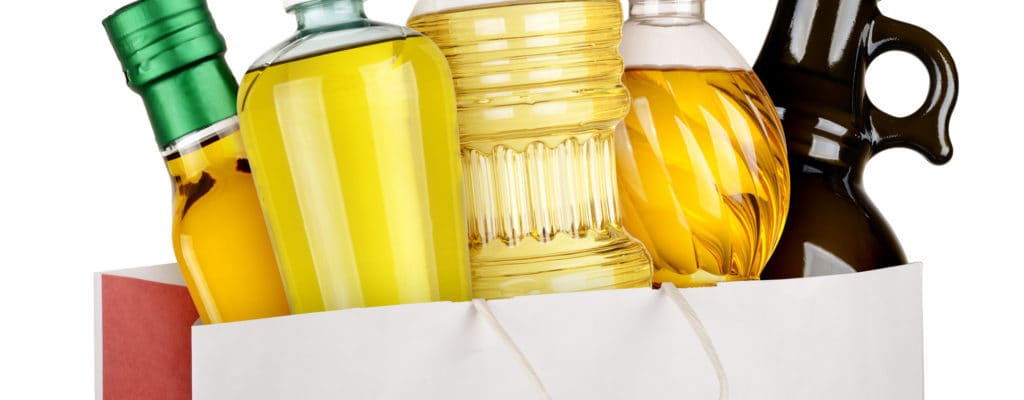
Toxic cooking oil is considered one of the leading causes of cardiovascular diseases in our country. Facing the situation of poor quality oil on the market, wise housewives need to equip themselves with the necessary knowledge about choosing cooking oil to protect the health of the whole family.
Did you know that 99% of the cooking oils sold at the stores are refined cooking oils? Scientists have shown that "trans fats" are responsible for many of the negative health effects of consumers, such as obesity, diabetes or heart problems.
Even vegetable-based edible oils that are known to be safe for health, after prolonged storage or use, under the effects of sunlight, temperature and oxidation, they also degenerate and are dangerous to the user. Want to check whether our cooking oil is safe or not, mothers try these 3 simple methods below!
Observe
With the naked eye, housewives can observe whether the cooking oil is an unnatural yellow, opaque yellow, or a dark yellow color. If so, chances are that the natural nutrients have been filtered out, making the cooking oil an eye-catching bright yellow color.
Read the packaging carefully
You should carefully read the information on the label or packaging to determine if the oil is made from corn, cotton seeds, sunflower seeds, soybeans, coconut, sesame seeds, peanuts, or canola. These oils are easy to lose quality when pressed, so they need to be refined and deodorized.
If the package does not write "super pure" or "cold pressed", this refined oil is safe for users. You should also do not believe too much information on the product. Many investigation results show that there are dozens of super-pure cooking oil bottles containing toxic refined oil.
The bottle is made of poor quality plastic
The cooking oil with a bottle is a transparent, poor quality industrial processed plastic that no longer has the feature to prevent the oil from oxidizing which can be harmful to health. There are countless poor quality cooking oils, unsanitary, drifting in the market, so we housewives need to be careful with cooking ingredients for our family.
Choosing raw, untreated cooking oil is extremely important. It's best to stay away from herbal or refined oils made from canola, peanut, soybean, sunflower, and corn. One study found that there are a lot of harmful fats found in cooking oils, including ones that are thought to be as healthy as extra virgin olive oil. In addition, consumers are also blinded by many advertising slogans of companies such as:
"It's fine if cooking oil does not contain trans fats."
Trans fats found in fast foods, packaged foods, and canned foods are known to cause chronic diseases such as obesity, diabetes and even death.
The reason the food is labeled "does not contain trans fat" is because it is even more dangerous to turn trans fat into another type of fat during production.
"Vegetable oils like canola and sunflower oils are good."
As mentioned above, vegetable oil is really good for health, but when refined, all vitamins and nutrients are no longer, and the oil will become toxic.
"Pure olive oil is absolutely healthy"
This statement is only partially true because most of the olive oil you find in the stores is not pure. Research shows that the manufacturers have mixed olive oil with poor quality refined oil. Up to 69% of the "super pure olive oil" sold widely in the market is fake.
As a smart consumer, a model housewife , you should wisely choose safe products to always have a delicious meal with your beloved family!












